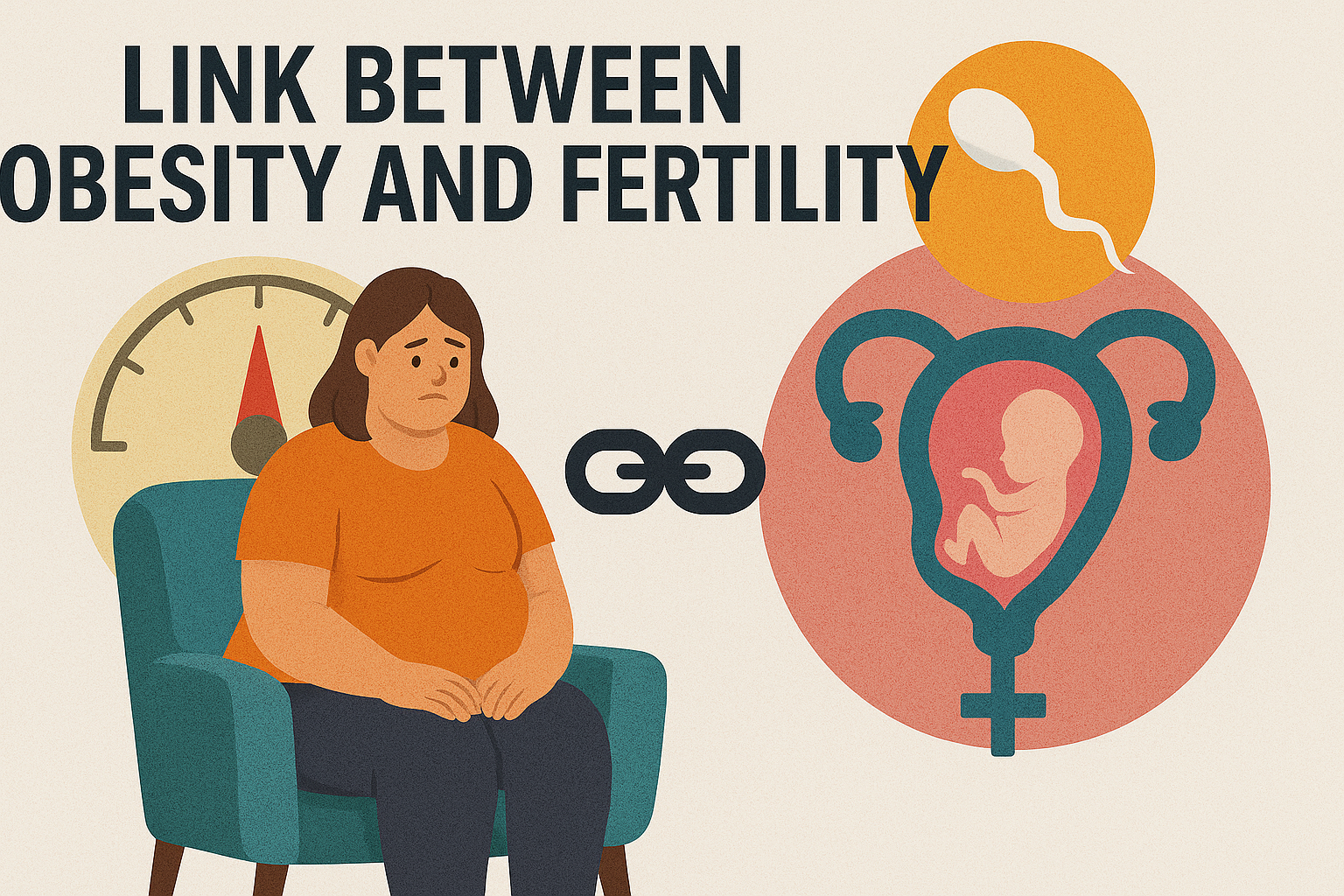Key Takeaways
- Obesity disrupts hormones, ovulation, egg and sperm quality, and increases IVF failure and pregnancy complications.
- In women, it can worsen PCOS and reduce embryo implantation success.
- In men, it impairs sperm production, DNA integrity, and hormonal balance.
- Weight loss—even small amounts—can restore fertility functions and improve IVF outcomes.
- A holistic, supported approach to weight management is critical for those on a fertility journey.
Obesity doesn’t just affect weight—it can significantly impact fertility in both men and women. From hormonal imbalances to reduced IVF success rates, excess weight creates multiple roadblocks to conception. Here’s what the latest research reveals—and how to improve your chances of starting a family.
How Obesity Affects Female Fertility
1. Disrupted Ovulation & Hormonal Imbalance
- Excess fat disrupts estrogen and insulin levels, leading to:
- Irregular or absent ovulation (anovulation)
- Worsened PCOS symptoms (irregular periods, excess androgens)
2. Poor Egg Quality & IVF Challenges
- Obese women have:
- Lower egg quality (reducing fertilization success)
- 30% lower IVF success rates due to impaired embryo implantation
3. Higher Risk of Pregnancy Complications
- Increased chances of:
- Gestational diabetes
- Preeclampsia
- Miscarriage
How Obesity Affects Male Fertility
1. Hormonal Shifts & Low Testosterone
- Obesity lowers testosterone while increasing estrogen, leading to:
- Reduced sperm production (oligospermia)
- Erectile dysfunction
2. Sperm DNA Damage & Heat Stress
- Excess fat raises scrotal temperature, causing:
- Poor sperm motility
- Higher miscarriage risk due to DNA fragmentation
3. Psychological Impact
- Stress and depression (common in obesity) lower libido and sexual function.
What Can You Do? 5 Steps to Improve Fertility
- Lose 5-10% of Body Weight
- Even modest weight loss restores ovulation and improves sperm health.
- Adopt a Fertility-Boosting Diet
- Mediterranean diets enhance reproductive outcomes in both sexes.
- Exercise Regularly
- 30 minutes/day of moderate activity balances hormones.
- Consider Medical Help
- GLP-1 drugs (like Wegovy) can aid weight loss before IVF.
- Fertility treatments (IUI/IVF) may be needed if natural conception fails.
- Consult a Specialist
- A reproductive endocrinologist can tailor a plan for you.
The Bottom Line
Obesity doubles the difficulty of conception—but reversible with lifestyle changes and medical support. If you’re struggling, early intervention is key.
Disclaimer
This article is for informational purposes only and does not constitute medical advice. Always consult with a qualified healthcare provider or fertility specialist before making any changes to your health, diet, or treatment plan. Individual results may vary, and any health decisions should be made in partnership with your doctor.
References
- NIH: Obesity & Anovulation
- Fertility and Sterility: IVF & BMI
- ACOG: Obesity in Pregnancy
- Harvard: Male Obesity & Fertility
- Andrology: Sperm DNA Damage



